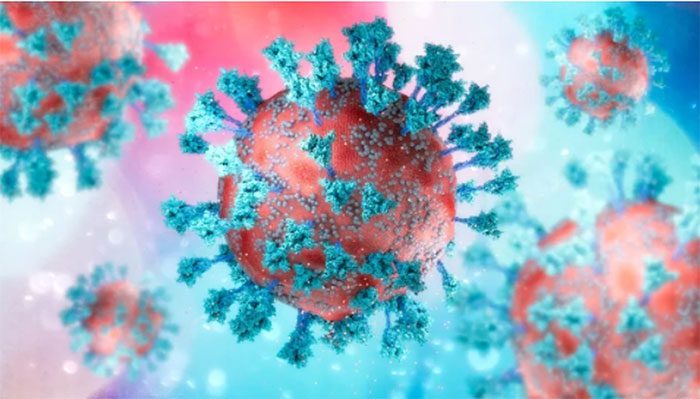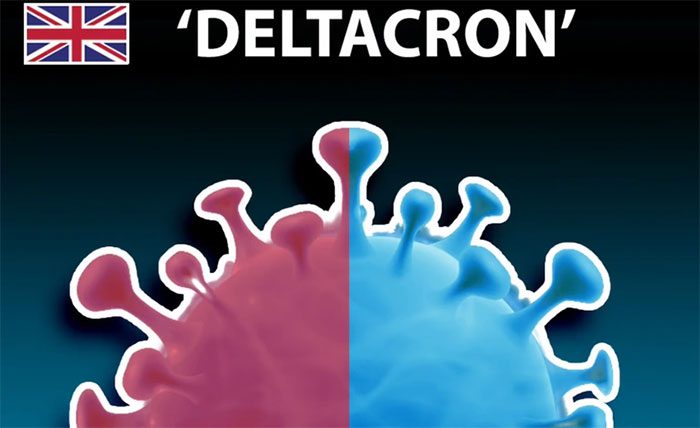A new hybrid variant, combining both the omicron and delta variants of SARS-CoV-2, has been confirmed through genetic sequencing and is temporarily referred to as “deltacron.”
Recently, the World Health Organization (WHO) reported information from scientists at IHU Méditerranée Infection in Marseille, France, regarding the discovery of a new Covid-19 combination, which is a mix of the two most prevalent SARS-CoV-2 variants: delta and omicron.

This variant combines both omicron and delta variants.
It is known that the hybrid variant emerged through a process called recombination—when two variants of the virus infect a patient simultaneously, leading to the exchange of genetic material to create a new hybrid generation.
Scientists state that the “backbone” of the “deltacron” variant comes from the delta variant, while the mutated proteins that allow the virus to enter host cells are derived from omicron.
“We find that recombination can occur in humans or animals, with many circulating variants of SARS-CoV-2,” said Dr. Soumya Swaminathan, a scientist at the World Health Organization (WHO). However, he emphasized that “more experiments are needed to better determine the characteristics of this virus strain.”
Maria Von Kerkhove, head of the technical team at WHO, added that so far, scientists have not found any changes in the severity of the new variant compared to previous variants. However, unlike earlier variants such as delta and omicron, this new variant does not appear to be easily transmissible.

More experiments are needed to better determine the characteristics of this virus strain.
Typically, mutations occur regularly until a mutation is strong enough to become a new variant. In this case, multiple different mutations have likely occurred as a means for delta to continue surviving amid the omicron wave.
Dr. William Lee, Chief Scientific Officer at Helix, warned that co-infection cases (simultaneous infections with multiple Covid-19 variants) may occur more frequently than we think, as most are very difficult to detect.
While suggesting that people may not need to be overly concerned about “deltacron,” Dr. Lee believes that researchers can learn a lot from the evolution of this latest variant.
“It is an interesting phenomenon, and it helps us understand more about how the virus evolves and how the pandemic continues to extend,” he stated.



















































